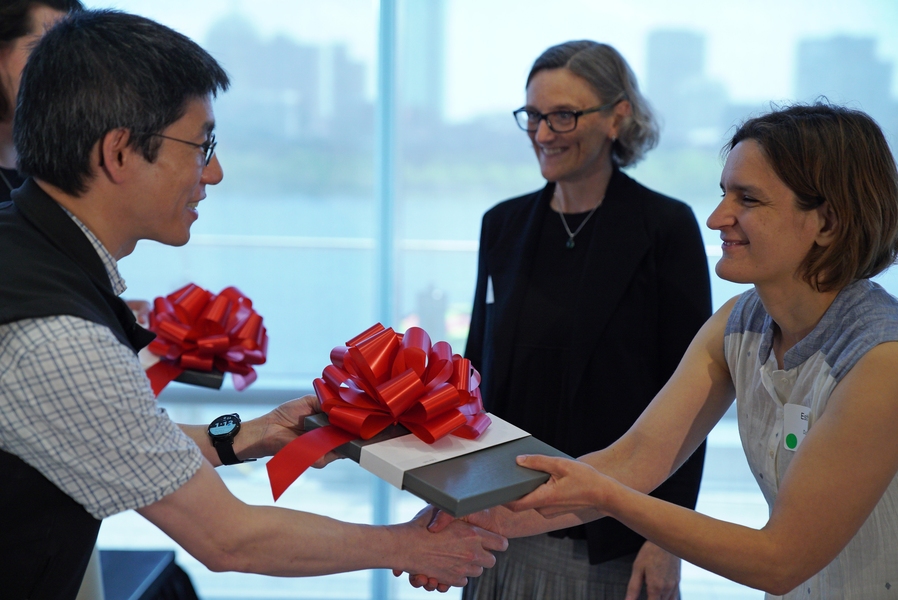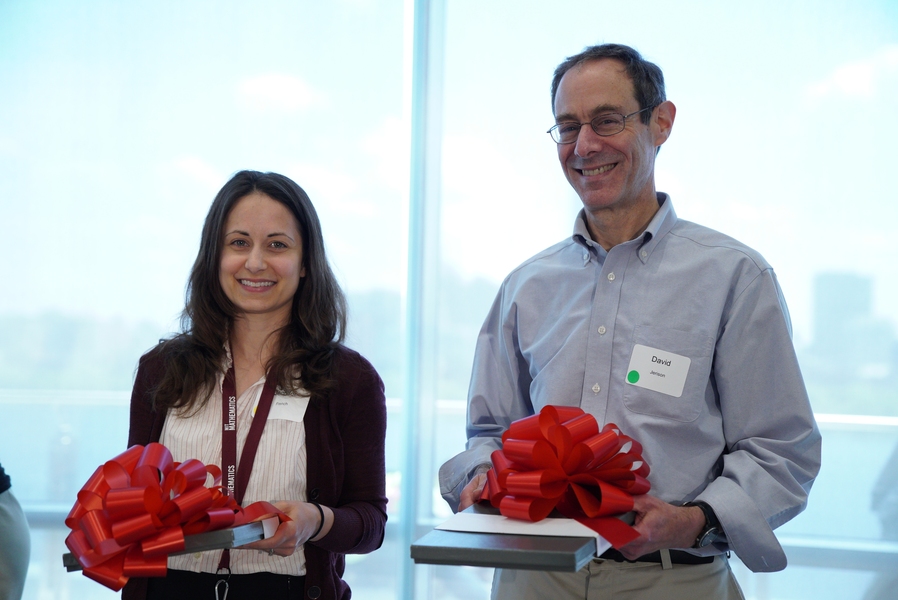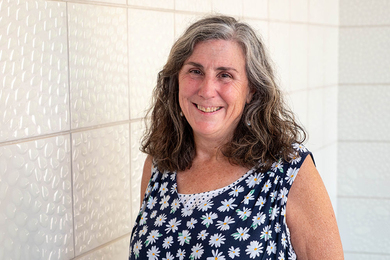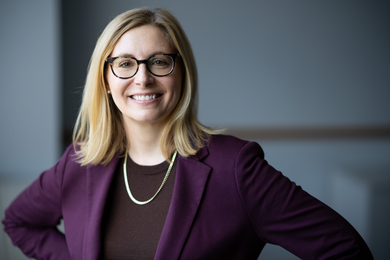MIT’s Office of Digital Learning honored the winners of its inaugural MITx Prize for Teaching and Learning in MOOCs (massive open online courses) at the MITx Significant Interest Group event on Friday, May 19. The award is part of the Institute’s effort to encourage the development of new MOOC methods and technologies. The MITx Prize for Teaching and Learning recognizes educators who have devoted themselves to better engaging learners around the world through digital classrooms.
“MIT’s faculty and Digital Learning Lab members have been at the forefront of the digital learning movement, and we felt it was time to recognize these colleagues for their work,” says Professor Sanjay Sarma, vice president for open learning at MIT. “MITx course teams are incredibly dedicated to sharing the MIT experience with learners around the globe though edX, and their commitment to creating high-quality, innovative courses is inspiring. We were very pleased to receive a number of nominations in this round, and plan to make the award an annual event.”
Three winning groups of co-instructors were selected from a pool of individuals who made significant contributions to MITx MOOC coursework offered on edX.org during the 2016 calendar year. Nominees from all MOOC course types, including self-paced, instructor-paced, first runs, and reruns, were eligible.
The MITx Faculty Advisory Committee served as the review panel and made considerations based on an extensive list of criteria, including: learner-focused technological-, communication- and assessment-based innovations within the course; contributions toward general best practices in the rapidly expanding realm of digital learning; and “overall impact of the MOOC experience on global learners.”
While the panel focused primarily on how nominees have helped further the cause of global access to education, submissions were also noted for the impact of new MOOC materials on residential education at MIT itself. Just as MOOCs seek to replicate the learning tools and environments of an analog collegiate experience, lessons gleaned from the digital sphere of higher education may be applied in physical classrooms or materials may be repurposed for use in blended learning formats.
Deepto Chakrabarty, Peter Dourmashkin, Saif Rayyan, and Michelle Tomasik were selected for their work on behalf of the “8.01x Mechanics Series,” a MOOC adaptation of a core curriculum calculus-based physics course for MIT undergrads. The review panel lauded the team’s use of lightboard technology that better replicates classroom lecture formats in videos, creation of new problem types for learning vector and force diagram problems on the edX platform, and positive impact on “virtually the entire undergraduate population” through the residential and global use of content.
8.01x was a natural progression for Chakrabarty and Dourmashkin, co-leaders of the on-campus freshman physics program at MIT, which used a Technology Enabled Active Learning (TEAL) format prior to the MOOC adaptation. The lead faculty member and senior lecturer for 8.01 (Classical Mechanics), respectively, Chakrabarty and Dourmashkin drove the content and lecture elements of the course. Tomasik, a postdoc and MITx Digital Learning Lab Fellow, managed and developed the series, pioneering the use of the light board technology and incorporating best practices of digital learning into the course’s assessment component. Rayyan, a lecturer and MITx Digital Learning Scientist, built the team and designed all aspects of 8.01x, including the new tool for grading vector problems and free body diagrams.
"There are several good MOOCs on classical mechanics already out there, but MIT’s 8.01 curriciulum has unique strengths in terms of content, rigor, and level. We also wanted to bring the active-learning philosophy of our residential course into a MOOC,” says Chakrabarty. “The resulting 8.01x online tools are having a major impact on how we deliver instructional content in our residential 8.01 course as well. We are honored that our work has been recognized by this MITx prize.”
As part of their “18.01x Calculus Series,” David Jerison, Gigliola Staffiliani, Jennifer French, and Karene Chu introduced a new sketch input tool and live-action videos while demonstrating what the review panel described as an “incredible level of commitment to course development and creating the best possible product.” The team drew content from Jerison’s 18.01 (Single Variable Calculus) course to serve as the base curriculum for 18.01x, then designed and built a highly interactive learning experience involving video, problems, text, and images.
The sketch tool allowed the team to automatically grade student-drawn functions, and accomplished one of the course’s stated goals: getting students to move fluidly between graphical and mathematical representations of functions. The live-action videos humanized the content by adding humor and tying discourse to real-world problems, which motivated students to engage with concepts in ways educators don’t often see.
“What I can say qualitatively is that students regularly commented on these videos in terms like, ‘wow, I wish they’d explained it this way in high school, awesome video,’” says French. “We believe that we have created a beautiful series of calculus courses, and it is an honor to have this work recognized with this prize.”
The third set of winners, professors Esther Duflo and Sara Ellison, are the minds behind “14.310x Data Analysis for Social Scientists.” Their course is used in MIT undergraduate studies and as part of the Data, Economics and Development Policy MicroMasters program. The duo were selected for their balance of rigor and accessibility in helping students acquire and develop big data skills via the edX platform.
The 14.310x course is the first collaboration between Duflo and Ellison, punctuating a friendship that has formed over the last two decades. When Duflo approached her with a concept that would give learners a quick start in developing tools to understand and carry out empirical research in social sciences, Ellison’s single imperative was to provide “a rigorous mathematical foundation for everything we do.” Dividing lectures half and half between them, Ellison furnished the course’s mathematical framework, while Duflo developed the hands-on skills students need to put the theory into practice.
“I'm very honored and pleased to receive this prize and, especially, to share it with Esther and the rest of the team,” says Ellison. “We hope this recognition will help us reach a wide audience who is interested in both a rigorous foundation and the practical tools necessary for data analysis.”
“The fact that our class was chosen among so many other deserving classes may also be a recognition of the increasing importance of the skills we teach for a modern, technical education. “
For more information on MOOCs on MITx, visit MIT’s Office of Digital Learning site. The MIT Office of Digital Learning will begin accepting nominations for next year’s prize in January of 2018. Please contact Lisa Eichel with inquiries on eligibility requirements.








